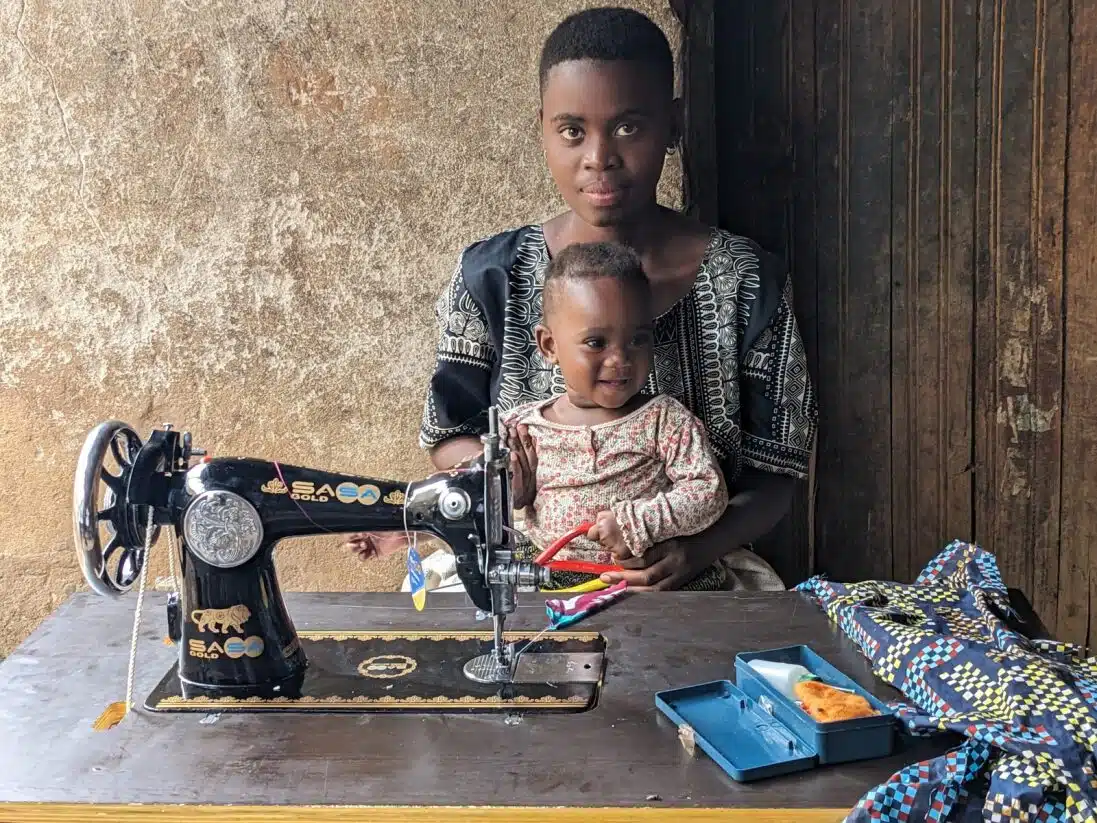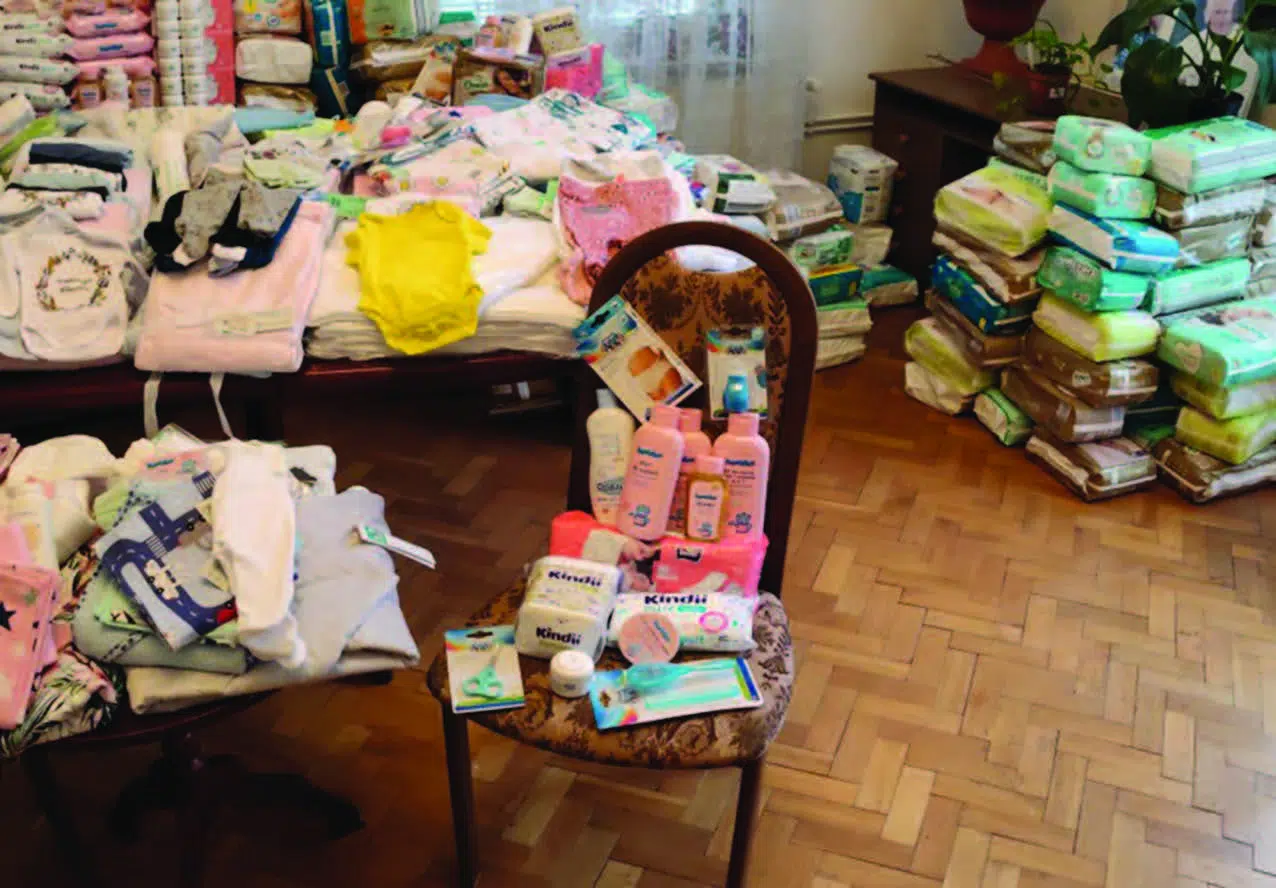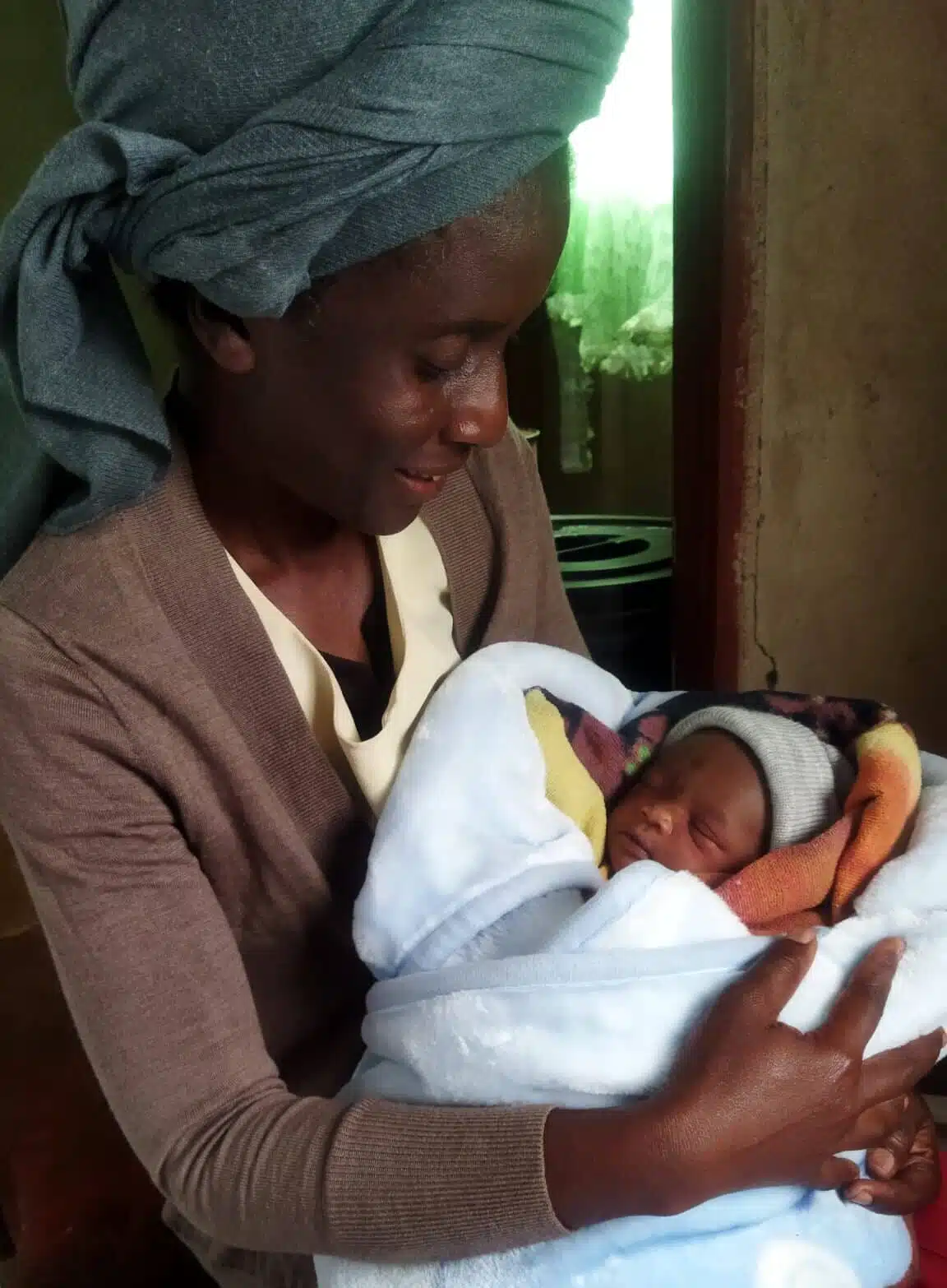Who Is My Sister in Need?

Over and over again in the Gospels, when Christ is asked by His followers what they must do in order to be saved, He gives them a straight-forward response: First of all, love God. And then, love your neighbor.
As He so often makes clear, love of one’s neighbor is not some abstract, feel-good emotion. Rather, authentic love is expressed through concrete assistance aimed at promoting and protecting the physical and spiritual welfare of the other.
Repeatedly, Christ reiterates a message that is almost austere in its simplicity. Do you wish to follow God’s commands? Do you wish to be counted among Christ’s disciples? Do you wish to be saved? Then, feed the hungry. Clothe the naked. Give shelter to the homeless. Visit the imprisoned. Visit the sick.
As Christ tells His followers in Matthew 25, when they perform these simple acts of love for the needy, they are performing them for Christ Himself. And when they meet God in judgment, it is on account of these acts of love that He will recognize them as one of His followers and welcome them into His kingdom.
Maternity Homes are Serving Women
These ruminations have been sparked by a recent news article from the Associated Press that has made me even prouder to be a part of this great movement called the pro-life movement.
The article puts a spotlight on the growth in number of maternity homes in the United States, in particular, since the overturning of Roe v. Wade.
One leader of a maternity home network told the Associated Press that since the Dobbs decision (which overturned Roe), the number of homes in her network has spiked by 23%. Valerie Harkins told the AP that there are currently about 450 maternity homes across the United States.

It is worth noting that maternity homes are not the same thing as pregnancy care centers (CPCs). Maternity homes are specifically intended to provide a place for pregnant women in need to stay during and immediately after pregnancy. They provide lodging and food on top of the numerous other services that the thousands of CPCs across the United States provide to women in need.
CPCs are a critical element of the pro-life movement’s efforts to provide tangible support to women facing difficulties because of an unplanned pregnancy. But maternity homes provide a particularly important and effective service: meeting the needs of women in the direst of circumstances, such as homelessness, drug addiction, severe poverty, abusive relationships, etc.
Bringing Hope to Crisis Situations
Another recent article, in NPR, puts the spotlight on one such maternity home. The Nesting Place is a maternity home located in Nampa, Idaho. The home was founded by Robin Watters, a Christian woman.
Watters recounts how the idea to found The Nesting Place was sparked by a question she read in a Christian publication. “What would your state do if Roe v. Wade was overturned?” That got the wheels turning. “Wouldn’t a maternity home,” she says, “be the perfect answer?”
Although Roe hadn’t yet been overturned, Watters got down to work. She and her organization purchased and renovated a building that could house women. Amazingly, work on the home was just finishing up when news broke that Roe v. Wade had been overturned. The Nesting Place was ready to help women who might otherwise have chosen abortion instead of bringing their children into the world with courage and hope.
The most extraordinary thing about the growth in maternity homes across the United States is just how immense an undertaking it is to run such a home. According to Watters, it costs about half a million dollars per year to keep The Nesting Place in operation. The home is staffed 24/7, and in addition to providing food and lodging, it also provides job-related training and various other forms of training to help women learn the skills needed to build a better life.
It’s a breathtakingly ambitious apostolate, especially when you consider that the home is funded entirely with private donations. Unlike pro-abortion organizations like Planned Parenthood, homes like The Nesting Place do not receive generous government grants. And yet, hundreds of these are kept in operation through the generosity of ordinary pro-life people who felt inspired to respond to Christ’s call in the Gospel to serve those in need.
While running a maternity home is extremely resource- and effort-intensive, it is hard to put into words just how impactful such an apostolate can be. Eighteen-year-old Auna told NPR that she had actively looked into getting an abortion. However, she had been raised to view abortion as wrong. Now 25 weeks pregnant, she eventually found The Nesting Place. And now she says that she is excited by what comes next. She and her preborn child will be safe.
Several other women told the Associated Press about their relief at discovering the existence of pro-life maternity homes. “Everything was just so clean. The room was all set up. It was really a breath of fresh air,” one woman told the AP, as her newborn slept in her arms. For her, it served as a real home, putting her into community with other women, and giving her the space to figure out what’s next in her life.
Thanks to these maternity homes, thousands of women are finding hope and dignity, have been empowered to choose life, and are often receiving training and support that will allow them to leave the maternity home and build a better life, confident in their ability to support themselves and their child.

The Pro-Life Fuel Behind Supporting Women in Crisis
The pro-life movement is not naïve. Pro-life activists know, perhaps better than anyone else, how challenging an unplanned or crisis pregnancy can be for a woman. After all, many pro-life activists have spent enormous amounts of time providing counselling to women outside abortion clinics. They have listened to the heartbreaking stories of neglect, abuse, drug addiction, poverty, unemployment, and more.
However, pro-lifers also know that killing an innocent human being can never be the answer to any problem. What seems like an easy solution is not only morally indefensible, but it often produces greater pain and heartbreak in the long term.
It’s these activists who are best equipped to know just how great this pain can be, because it’s the pro-life movement that provides the counselling services to which devastated women subsequently turn when looking for healing and forgiveness after an abortion that left them traumatized and filled with regret.
While the abortion movement focuses on expanding funding for abortion and fighting every pro-life law, no matter how commonsensical, the pro-life movement is furiously providing the resources needed to help women who have chosen to welcome life. And they are doing so without the kind of government assistance that the abortion movement receives in such abundance.
As the AP reports, “In the absence of a robust social safety net, maternity homes are filling a void with needed services for women and children. While residents may use public assistance, neither Mary’s Shelter nor Paul Stefan accept state or federal funds for their general operations.”
Hopefully that will begin to change. As AP notes, at the moment five states do provide some grants for pro-life maternity homes. Hopefully, more will do so soon. Imagine how different things could be if our nation invested in promoting life and hope instead of pouring billions of dollars into the coffers of pro-abortion organizations!
Modern-Day Good Samaritans
No parable more perfectly encapsulates the urgency of Christ’s teaching about love of neighbor than the Parable of the Good Samaritan (Lk 10:25-37).
At a remove of 2,000 years, it is unfortunately too easy to lose sight of how difficult and shocking this parable would have seemed to His Jewish listeners. After all, at the time of Christ, the Samaritans were considered to be the mortal enemies of the Jews. The Jews hated the Samaritans and avoided any contact with them (an ill will that probably went back before the separation of the northern and southern Jewish kingdoms). The Samaritans reciprocated these feelings. The enmity was mutual, deep, and abiding.
In the parable, however, Christ sets up a parallel between a Samaritan merchant and two men who would have been considered paragons of the Jewish religious faith – a priest, and a Levite. But, in a move that must have left His Jewish listeners squirming in their seats, neither the priest nor the Levite are the heroes of the story. Instead, it is the hated Samaritan who is put forward as the man who was most closely following God’s law, the one who is to be admired and emulated.
And why? Because he had compassion on a fellow human being. Setting aside the enmity he was supposed to feel for the Jewish man who had been robbed and left for dead, the Samaritan lovingly nurses him back to health. In this way, Christ is clear, the Samaritan is the model for Christ’s listeners. “Go and do likewise,” Christ says of the Samaritan’s behavior.
This is how much Christ values the compassionate care for another human being.

Those who have the courage and conviction to found a pro-life maternity home (or pregnancy care center), despite the many obstacles to the endeavor, are modern-day Good Samaritans. They have found that they cannot pass by the downtrodden without gazing upon them with compassion, taking them in their arms, and providing for their needs. This is the radical response that we are all called to as followers of Christ.
It is amazing reading the numerous stories of women whose lives have been completely turned around thanks to the Christ-like love poured out upon them by these maternity homes. I am proud of those courageous men and women who have responded to Christ’s call and set out into the deep in this way.
My prayer is that some of those who read this column might be inspired similarly to set out in the deep, whether that be by finding their local maternity home and offering whatever support they can, or by starting up a new maternity home in their community. This is how we will transform our culture of death into a Culture of Life: one generous act of love after another.


Hello from NZ,
We certainly need a few maternity homes here in New Zealand.
Please pray for us
Hi Kay,
Father Boquet is currently visiting Family Life International in New Zealand! Definitely take a look at the great work they are doing! Here is their website: https://fli.org.nz/
God bless,
HLI
Elegantly stated, easy to understand and put into practice. Do as Christ commanded. However, in order to do this we must first Stop and in today’s society look both ways. We will find the Arrow pointing us to that Way. Have faith and trust in our Lord. Remember, Rome wasn’t built in a day!
I live in Nampa, Idaho and now that I know of this place will seek it out.